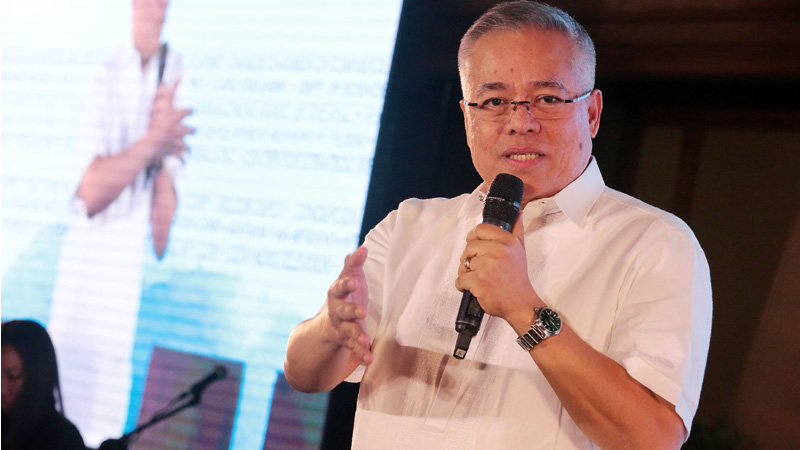
Trade and Industry Secretary Ramon Lopez. (File photo by GRIG C. MONTEGRANDE / Philippine Daily Inquirer)
The Philippines will not sign a free-trade agreement with South Korea this year, a disappointing end that came months after both sides vowed to sign a deal today at an international summit in Busan, South Korea.
Instead, both countries will sign what Trade and Industry Secretary Ramon Lopez called an “early achievement package,” which is essentially a progress report on the free-trade agreement (FTA).
This is not what both the government and the business sector expected, especially after the two countries expressed confidence to finish the FTA in just a matter of months. FTAs —which involve sensitive issues such as further opening a local industry to foreign competition—usually take years to finalize.
Back in April, both the Philippines and South Korea announced that they would pursue a bilateral FTA, which they targeted to be signed at the Asean-Republic of Korea Commemorative Summit. The summit will be held today until tomorrow without any FTA in sight.
The signing would have coincided with the 70th anniversary of the two countries’ diplomatic relations.
The early achievement package to be signed on the sidelines of the summit simply means “agreeing to continue the discussion for next year, which means we won’t be signing [an FTA] this 2019,” Lopez told reporters last week, noting that the negotiations is still in a “stalemate.”
The delay in the FTA talks did not come as a surprise. Back in October, Lopez told reporters that they were still confident when the start of the negotiations was announced. But a lot changed on the negotiating table since then, including South Korea’s refusal to bring down the tariff on Philippine bananas within a five-year timeframe.
Philippine bananas currently have to pay a 30-percent tariff to enter South Korea. While the Philippines is South Korea’s biggest supplier of bananas, its 85-percent market share is under threat as Central American countries, which enjoy zero tariff, begin to increase their exports.
Nevertheless, the delay of the FTA gives both the Philippines and South Korea more time to iron out the deal, without the pressure of a deadline breathing down their necks. In the meantime, the Philippines still has a relatively improved market access to South Korea through the Asean-Korean free trade area, which took effect about a decade ago.